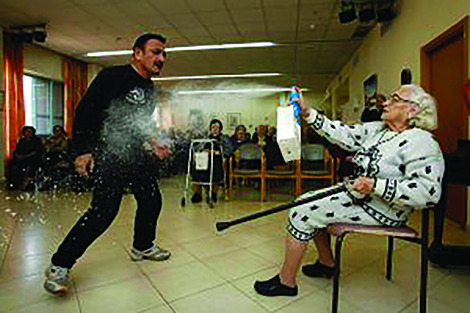Gardening is one of those activities that is low-impact, reduces stress, and improves your overall health and well-being. It is, however, possible to overdo it and strain muscles, joints and even end up with lightheadedness. There are some quick and simple ways to enjoy your gardening tasks without taxing your body too much, giving you all the benefits of this outdoor activity:
Pick the right time.
The middle of a hot summer day, with the full sun beating down on your head, is not the ideal time to start weeding. Early mornings or the early evenings are much better times to get down to the harder tasks in gardening. Leave the middle of the day to enjoy your space from the comfort of a swinging hammock or a patio set, complete with an umbrella and a cool drink.
Pick easy plants.
Just like people, some plants are high-maintenance. Roses, for example, require a lot of tending, protection from the elements, disease and insects, pruning, and so on to remain beautiful year over year. Skip those at the garden center and instead focus in on a few plants and shrubs that will be easy to maintain.
First off, go for perennials. They come back every year, saving you the effort of replanting. Depending on where you are in the country and what hardiness zone your area is in, you can look at some of the following for beautiful color and ease of care:
- Yucca plants. This is lovely green foliage that grows to up to five feet in width, taking up a good chunk of space, leaving you with needing fewer plants to manage. In particular, the red flowered yucca has been known to double in size in a season and is very hardy in a range of planting conditions, in addition to having beautiful red blooms.
- The blooms on this plant are gorgeous and can last all the way until first frost, returning the following spring.
- Ornamental grasses. While not a bloom, these are excellent in raised garden beds or even containers, creating a textured backdrop to whatever other plants are in with them.
- Campsis climbing vines. This is the kind of no-fuss plant that anyone with the least green of green thumbs can grow. Set it up near a trellis and point it in the right direction. It will do the rest.
If you’re worried about plants seeding and spreading, choose sterile cultivars (unable to provide or spread viable seeds) such as “blue chip†buddleias. These are easy to plant and will take care of themselves.
Pick manageable growing areas.
If you’re not up to raised beds and widespread planting, consider alternatives like container gardening. Multiple large pots and urns can be filled with herbs, flowers, grasses, and even placed in front of a trellis or next to an arbor, to allow the climbers to flourish. You can access the container more easily than ground level growing, using a stool if you prefer, rather than getting on your knees.
Another great option is called a vertical garden. This is a popular option in smaller gardens where growing beds and other planting areas are more difficult to manage. All you need is a series of rods, creating a hanging area, on which you can attach planters. You can have multiple rows, from the ground upwards. Fill your planters with veggie plants, herbs and flowers and you’ve got an instant privacy wall if you need it and more space for your hammock!
Pick the right tools.
A few tools that will make getting the gardening done easier and more pleasant:
- Long-handled tools that will allow you to manage your weeding and hoeing without kneeling. Look also for ergonomic handles, which are kinder to the joints, in all your tools but particularly in a shovel, which should also be lightweight, to avoid strains. The only tool where you want to avoid lightweight materials is your garden spade: this should be a solid tool that can handle the harder soils.
- Add a water wand to your hose to create a long handle when you need to reach higher levels, like hanging plants. An easy-to-squeeze trigger handle is a must.
- A garden cart will make it easier to transport your soil from the car, or your plants around the garden. Some even come with a seat, so it can double as a gardening stool.
- Knee pads for those times when you absolutely must get down to ground level.
- Power tools for the bigger tasks. A manual mower is a nice idea but can be very tiresome after a while. There is nothing wrong in deciding that a power mower is more your style.
For any tool that cuts, make sure that it is sharp. Dull pruning shears or garden scissors will make it that much more difficult to get the job done.
Small adjustments to your choices and purchases will make your gardening activities that much more enjoyable.
Don’t forget your hat, water and sunscreen. Even if it’s overcast out, dehydration and sun stroke are real causes for concern at any age. Above all, enjoy your time in the garden.
Rhianna Miller, who wrote this article, is a home garden design expert for Rubber Mulch (rubbermulch.com), a mulch product made from recycled rubber and used in gardens, playgrounds and sustainable landscaping.


